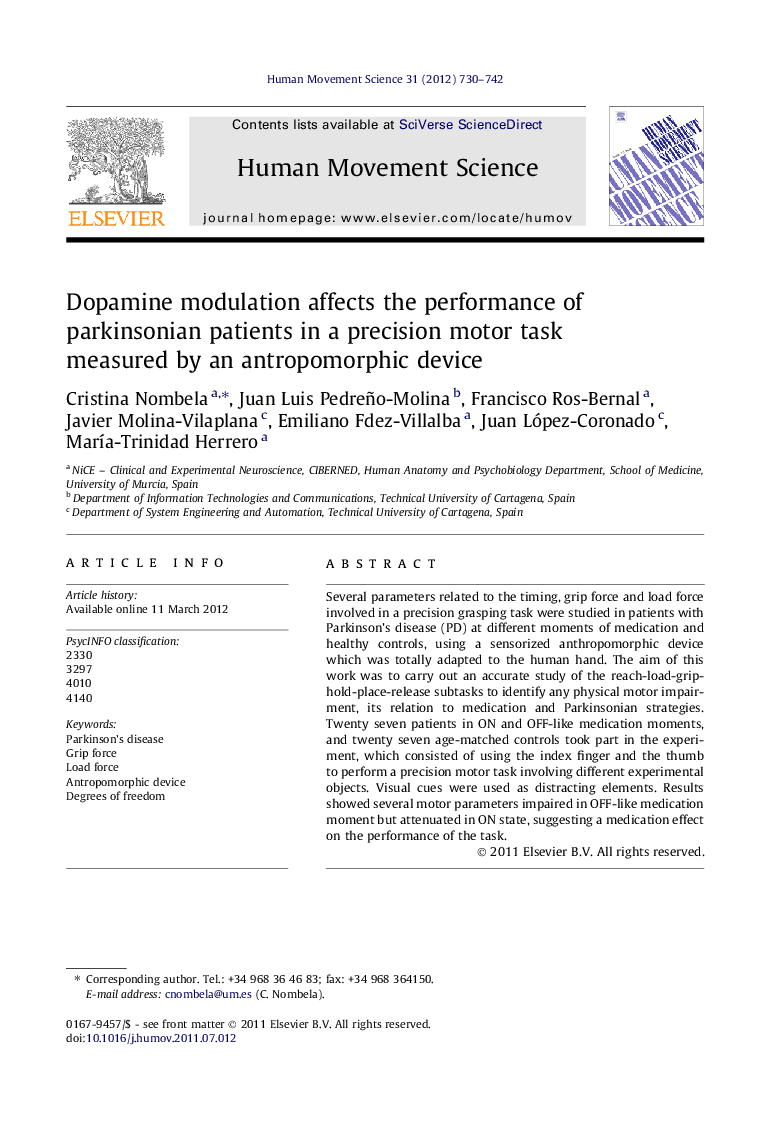| Article ID | Journal | Published Year | Pages | File Type |
|---|---|---|---|---|
| 928457 | Human Movement Science | 2012 | 13 Pages |
Several parameters related to the timing, grip force and load force involved in a precision grasping task were studied in patients with Parkinson’s disease (PD) at different moments of medication and healthy controls, using a sensorized anthropomorphic device which was totally adapted to the human hand. The aim of this work was to carry out an accurate study of the reach-load-grip-hold-place-release subtasks to identify any physical motor impairment, its relation to medication and Parkinsonian strategies. Twenty seven patients in ON and OFF-like medication moments, and twenty seven age-matched controls took part in the experiment, which consisted of using the index finger and the thumb to perform a precision motor task involving different experimental objects. Visual cues were used as distracting elements. Results showed several motor parameters impaired in OFF-like medication moment but attenuated in ON state, suggesting a medication effect on the performance of the task.
► Dopamine motor modulation in Parkinsońs disease patients and controls using an anthropomorphic device. ► Patients in wearing off medications showed specific differences respect to patients in ON and controls. ► Distracting visual cues did not affect parkinsonian performance. ► Wearing off medication (30 min before the following doses) appears as an alternative for ON–OFF studies.
